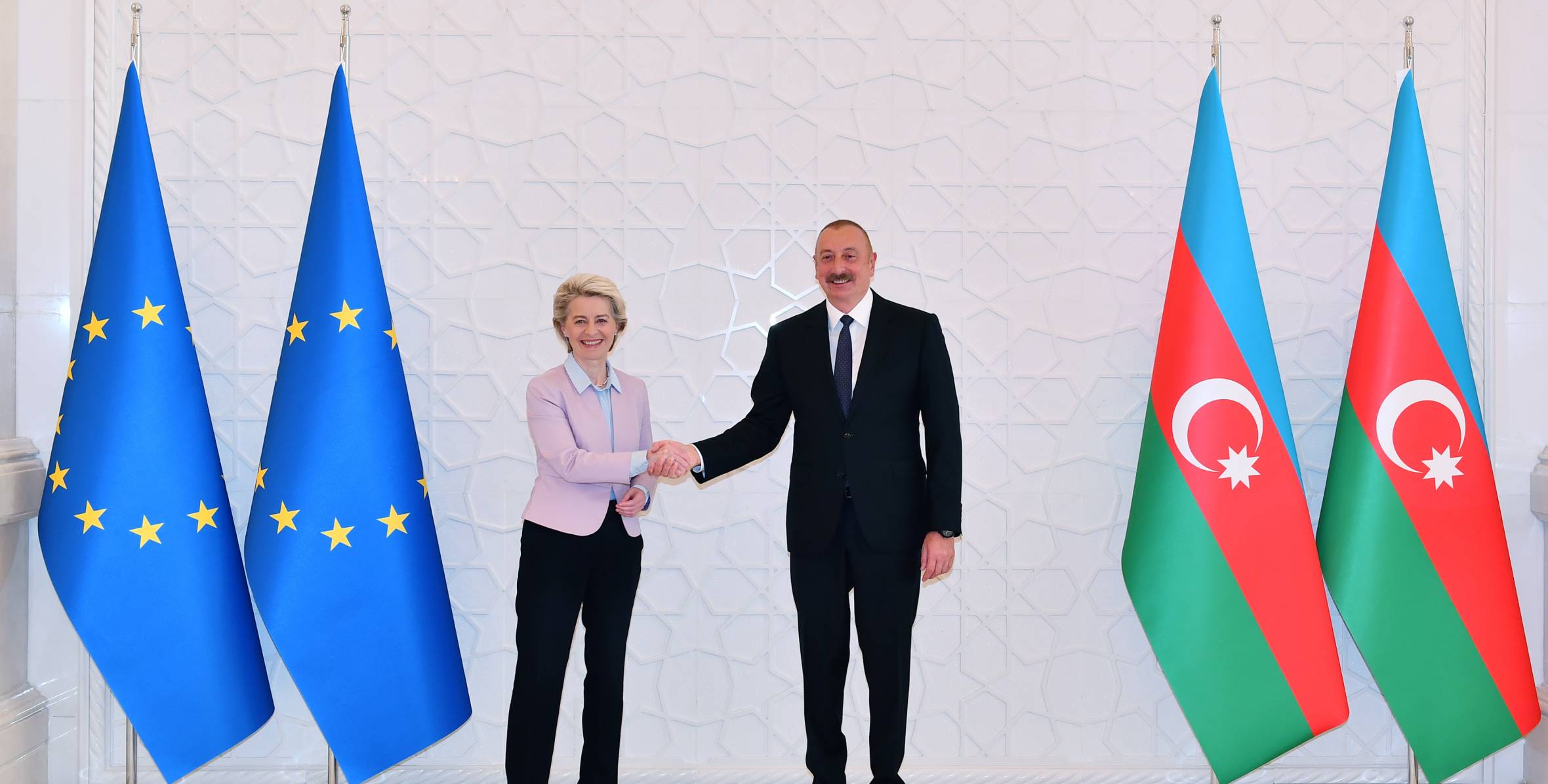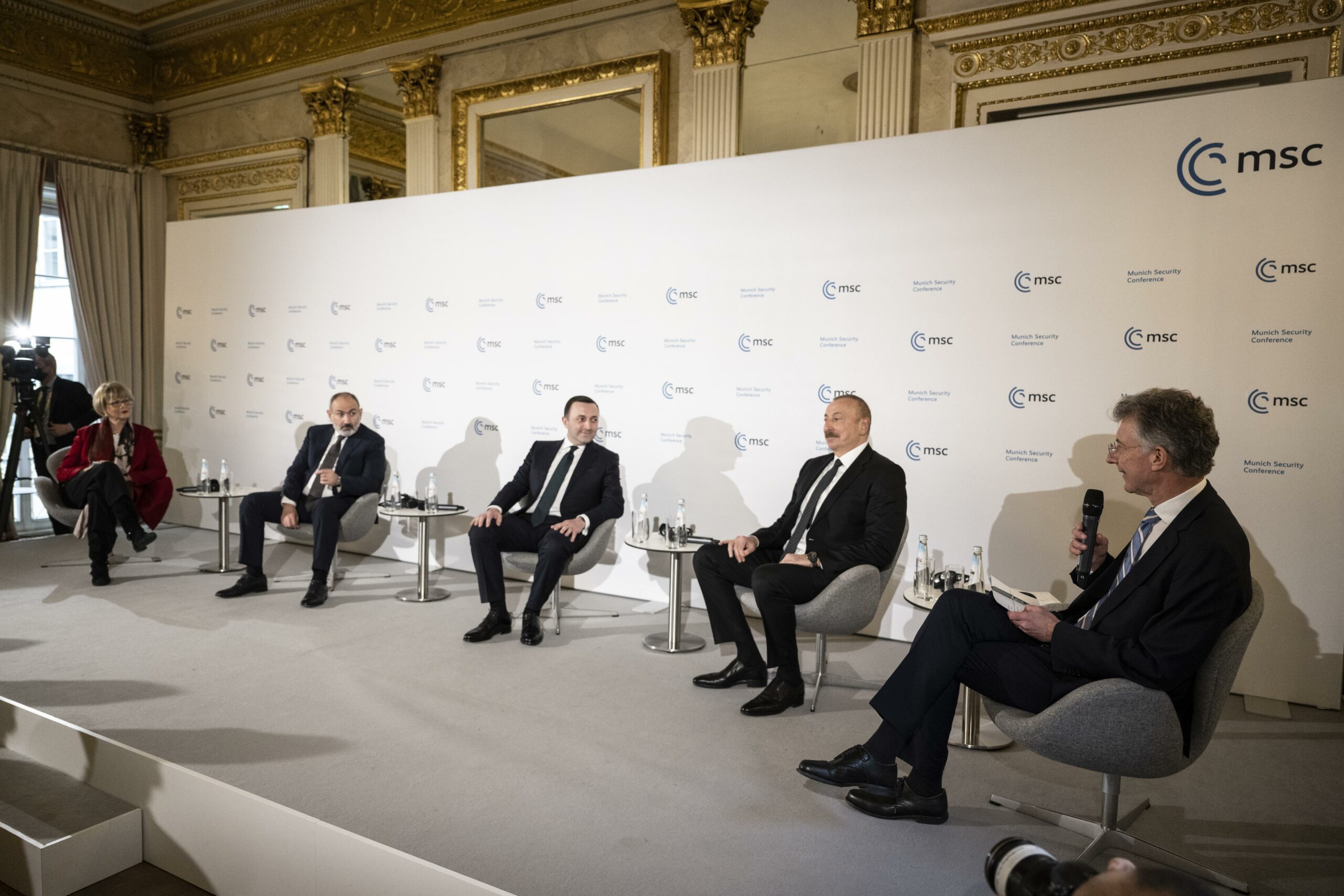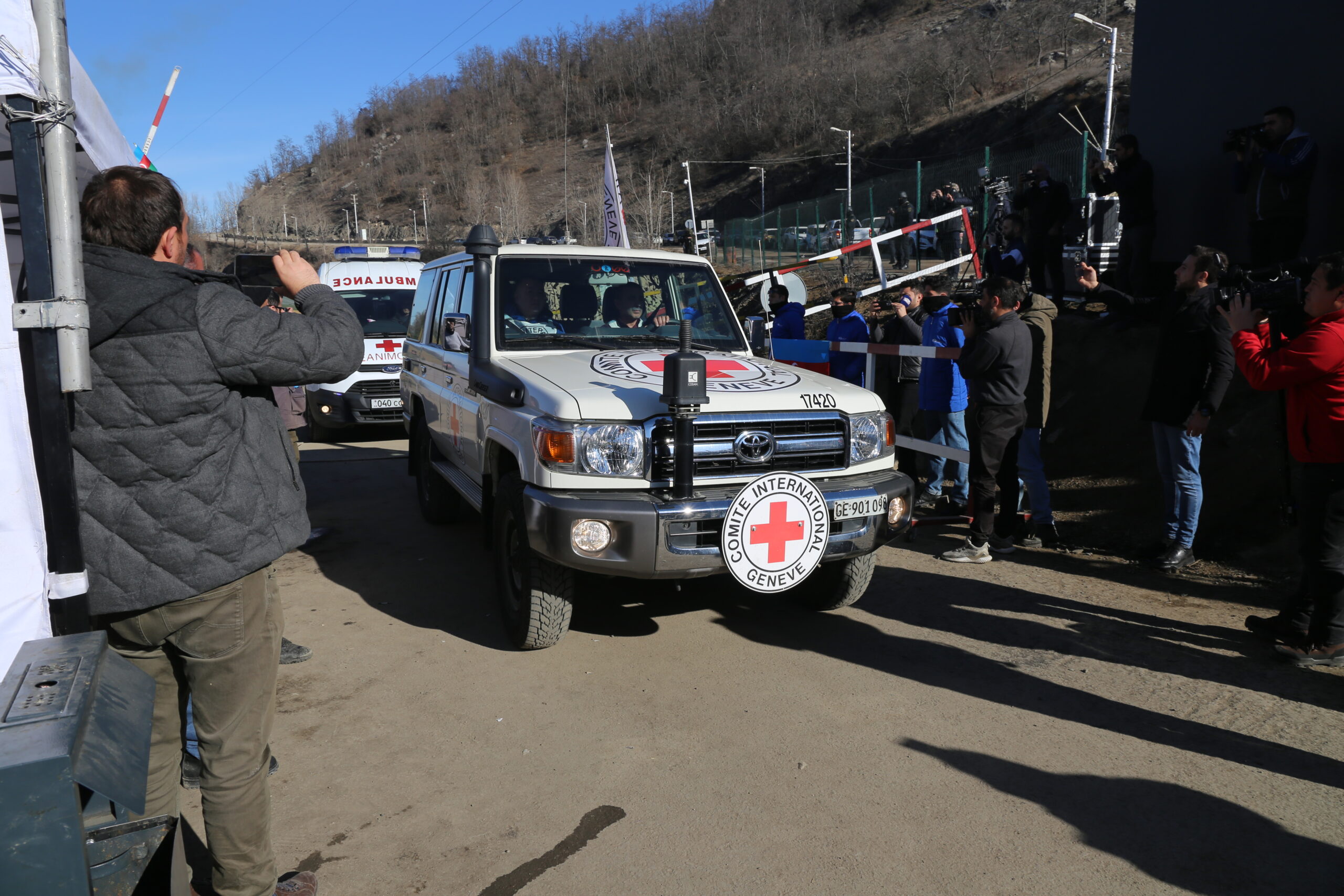The trilateral ceasefire agreement signed on 9 November 2020 between Armenia, Azerbaijan, and Russia created a serious shift in the balance of powers in the South Caucasus.
Consequently, Russia’s influence on developments in this region has been brought into question by the close alliance between Turkey and Azerbaijan. For its part, Armenia has tried to recover following its devastating defeat on the battlefield. To the north, Georgia’s priorities continue to be framed by internal developments. And looking south, Iran has been cautiously advocating for the “3+3” formula of regional cooperation. Furthermore, the magnitude of the Russian–Ukrainian war has contributed to further geostrategic changes and has increased the challenges throughout the South Caucasus. This article analyses several key aspects of the new geo-strategic environment in this region
Weaponised Energy
By signing the ‘Contract of the Century’ in 1994, Azerbaijan revealed its two major strategic goals: i) the restoration of its territorial integrity through the return, under its full control, of all territories lost after the first Nagorno-Karabakh (NK) war (1991–1994); and ii) Baku’s gradual transformation into a provider of crude oil and natural gas to the world energy market. The first goal was achieved in the course of the 2020 Nagorno-Karabakh war. The second has, to some degree, been realised against the background of EU and US sanctions imposed on Russia after its illegal annexation of Crimea in 2014. These sanctions have been further expanded after the latter’s invasion of Ukraine on 24 February 2022.
Four intertwined developments shed light on the politicisation and weaponisation of the energy issue by Russia, the EU, and Azerbaijan.
1) On 22 February 2022, Russia and Azerbaijan signed the “Declaration on Allied Interaction”. In accordance with Article 7, the parties “refrain from any actions that, in the opinion of one of the Parties, damage the strategic partnership and allied relations of the two states.” This document thereby prevented Azerbaijan from taking any openly pro-Ukrainian actions in the course of the ongoing war in Ukraine. In addition, it allowed Russia to partially escape sanctions imposed by the West. It also significantly reduced Russia’s capacity to provide military support to Armenia within the framework of Russian–Armenian bilateral agreements.
2) On 18 July 2022, the EU and Azerbaijan signed the “Memorandum of Understanding on Strategic Partnership in the Field of Energy.” As stated by Ursula von der Leyen, President of the European Commission, Azerbaijan is “a key partner in our efforts to move away from Russian fossil fuels.” According to the EU–Azerbaijan MoU, Azerbaijan is expected to supply an extra 4 bcm of natural gas to the EU in 2022 (bringing the total to 12 bcm), and by 2027 to double the transfers. Meanwhile, BP, which operates Azerbaijan’s largest gas field, Shah Deniz, in the southern Caspian Sea, announced that this field has limited capacity and cannot supply the entire volume of gas as agreed in the MoU.

Credit: Office of the President of Azerbaijan
3) On 15 November 2022, Russia’s Gazprom announced that it had begun supplying gas to Azerbaijan within the framework of the new gas purchase agreement and would supply up to 1 Bn bcm through March 2023. Its partner, Azerbaijan’s state oil company SOCAR, stated that the two companies “have been regularly cooperating in the field of gas supply and gas-chemical enterprises for the past 10 years. … both companies are trying to optimise their infrastructure by organising the mutual exchange of gas flows. The mentioned agreement is also a part of the joint cooperation.”
Consequently, Azerbaijan has begun to import Russian and Iranian gas to address its domestic energy needs and – with high probability – a certain volume of Russian gas has been transferred through Azerbaijan to Europe in order to fulfil Azerbaijan’s EU obligations.
4) At the roundtable discussion “Pipe Dreams: Future-Proofing Energy Security” (Munich Security Conference, 17 February 2023), President Aliyev stated that the goal in the medium and long term was the expansion of the Southern Gas Corridor proposed by Azerbaijan. He emphasised that, by 2027, Azerbaijan planned to increase gas transportation through TAP (Trans Adriatic Pipeline) from the current 11 bcm to 20 bcm and via TANAP (Trans-Anatolian Gas Pipeline) from 16 bcm to 31 bcm.
Azerbaijan can become an important partner and energy provider for Eastern European states if it finds additional gas reserves and figures out its transportation routes. In December 2022, Azerbaijan, Turkey, and Turkmenistan signed two interagency memoranda of mutual understanding on the development of cooperation in the fields of energy and transportation, both of which aimed to provide Turkmen gas through the Caspian Sea to Turkey – and from there to Europe. However, this project will be both time- and resource-consuming, taking into consideration also the aftermath of the devastating Kahramanmaraş earthquake in Turkey and Syria in February 2023.
Manoeuvres around Azerbaijan’s energy resources do not affect either Georgia or Armenia as the former receives its oil and gas from Azerbaijan, the latter from Russia and Iran.
As a whole, Russia’s curtailment of energy supplies to Europe after its invasion of Ukraine in February 2022, followed by EU and US sanctions on Russia’s energy sector, have multidimensional and accumulative geopolitical effects. These sanctions have forced both the EU and the US to intensify joint efforts in the search for alternatives to Russian sources of energy, turning also toward autocratic regimes, in particular Azerbaijan. The desire of the EU and the US to secure energy flows by all possible means raises ethical questions regarding their commitment to human rights and democratic values. It also indirectly indulged, together with the Russian–Azerbaijani “Declaration on Allied Interaction,” Baku’s aggressive approach towards Armenia and to the Armenian population of Nagorno-Karabakh – both in violation of the November 2020, trilateral ceasefire agreement.
A Security Deficit in the South Caucasus
The panel discussion “Moving Mountains? Building Security in the South Caucasus” was on the agenda of the 2023 Munich Security Conference. Leaders of the three South Caucasus states were invited to evaluate the situations in their respective countries through the prism of the war in Ukraine. Holding this panel clearly reflected a concern by the Western powers regarding the security deficit in the region, as well as the understanding that a new regional war will have broad catastrophic consequences. Several conflicts of different intensity contribute to the growing security deficit.

Credit: MSC/Preiss
A high intensity Armenian–Azerbaijani conflict can once again erupt in the short- to mid-term perspective. The unfinished delimitation and demarcation of the south-eastern segment of the Armenian–Azerbaijani border should be considered as a source of the most complicated and dangerous developments in the region. After the 2020 Nagorno-Karabakh war, Azerbaijan not only regained control over the territories surrounding Nagorno-Karabakh, but was also able to seize approximately one-third of the territory of the former Nagorno-Karabakh Autonomous Region. In May 2021, Azerbaijan’s armed forces invaded Armenia’s two southern provinces of Syunik and Gegharkunik, occupying about 41 km². Calling this operation “borders adjustment,” Azerbaijan for the first time challenged the willingness and ability of both Russia and the CSTO to fulfil their security guarantees and obligations towards Armenia.
The next phase of Azerbaijan’s direct aggression against Armenia occurred two months later after the signing of the MoU with the EU. On 13-14 September 2022, Azerbaijan’s armed forces attacked and further penetrated into Armenia’s sovereign territory. Azerbaijan again tested the strength of its partnership with Russia, the CSTO, and the EU. Its military aggression against Armenia went unpunished. The intense fighting only stopped after US diplomatic intervention, yet the Azerbaijani leadership continues to repeat its territorial claims.
An allocation of the EU’s two-year Common Security and Defence Policy (CSDP) mission in Armenia, which has been deployed along the Armenian–Azerbaijani border since 20 February 2023 upon the request of the Armenian Government, was met with strong criticism from Russia and Azerbaijan. On the one hand, Armenia’s noticeable move towards closer cooperation with the West, significantly stimulated by the Russian–Ukrainian war, has added fuel to current Armenian–Russian tensions – both political and diplomatic. On the other hand, this move will probably decrease the intensity of Azerbaijan’s aggressive behaviour. In the best-case scenario, it may provide fresh impetus to the Armenian–Azerbaijani peace negotiations.
Georgia welcomed this EU mission in Armenia. As for Iran, although it was always opposed to the presence of any military non-regional force in the region, it did not openly criticise the Armenian Government.
Another potential conflict to be watched closely is one that might occur between Azerbaijan and Iran. Tensions of a different nature between these nations have been simmering since Azerbaijan’s independence. However, shifts in the geopolitical and political-military landscapes of the South Caucasus after the 2020 Nagorno-Karabakh war have since drastically changed their interaction.
Iran’s security concerns have further increased after Russia’s invasion of Ukraine. Azerbaijan’s military and diplomatic pressure on Armenia has been aimed at forcing Yerevan to agree to open – in Baku’s terminology – the “Zangezur corridor.” This proposed new transportation link would give Azerbaijan uninterrupted access to the Nakhichevan autonomous republic (an exclave of Azerbaijan) via Armenian territory, and, according to the Azerbaijani side, should be operated under its full control. This route would thereby diminish Iran’s transit role between these two parts of Azerbaijan, as well as between Turkey and Central Asia, simultaneously increasing Turkey’s strategic weight. Furthermore, in the event of a new round of an Armenia–Azerbaijan military confrontation, this route would prevent Iran’s access to Russia through Armenian territory and would limit its economic cooperation with the Eurasian Economic Union. Therefore, any attempt by Azerbaijan to change internationally recognised borders would be viewed by Iran as an immediate security threat.
Another external security concern for Iran is posed by significantly increased military cooperation between Azerbaijan and Israel – in addition to the direct threat from Israel. Besides, Baku’s intensified anti-Iranian propaganda (which is sensitively echoed in the northern part of Iran populated mainly by ethnic Azeris), activated through official and social media channels, has been considered by Tehran as an internal threat to the regime.
In this configuration of powers, Iran’s further steps have been focused on efforts to resist activity taken by the Turkey–Azerbaijan–Israel axis (Pakistan in the foreseeable future will become another link) through a reduction of its tensions with Azerbaijan. This is an improvement in its relationship with Armenia, and a bolstering of its partnership with Russia and India in all domains, including the military.
The third conflict, which involves an ongoing confrontation between Azerbaijan and the ethnic Armenian population of Nagorno-Karabakh, can be characterised as a low-intensity conflict. According to Article 6 of the tripartite ceasefire agreement of 9 November 2020, “… in the next three years, a plan for the construction of a new traffic route along the Lachin corridor, providing communication between Stepanakert and Armenia, with the subsequent redeployment of the Russian peacekeeping contingent to protect this route will be determined. The Republic of Azerbaijan guarantees traffic safety along the Lachin corridor [the only route connecting Armenia and Nagorno-Karabakh. – G.N.] of citizens, vehicles and goods in both directions.”
More recently, Azerbaijan’s strong political, economic, military, and psychological pressure has culminated in a complete blockade of Nagorno Karabakh since 12 December 2022. The Azerbaijani side, by actually implementing an ethnic cleansing policy, has been trying to convince the parties concerned that the Lachin corridor remains open at all times. The Russian peacekeepers, who should guarantee the free movement of people and goods through this corridor, have no valid mandate to influence developments on the ground. An unprecedented activity of European and American partners, as well as the UN and the EU, demanding an immediate restoration of free movement in the corridor, remain only on paper. In reality, none of these international actors possesses the power to force Baku to change its modus operandi. For its part, after the 2020 Nagorno-Karabakh war, Armenia lost its status as a security guarantor for the NK Armenian population. Moreover, for the Armenian side, the only possible way to influence the situation on the ground would be a full-scale mobilisation of the international community in support of the NK cause.

Credit: Mahammad Turkman, via Wikimedia Commons
What Next?
Beneficiaries of the war in Ukraine – primarily Azerbaijan and Turkey – will deepen their strategic cooperation and strengthen their joint military potential. There is a high probability, that owing to the multidimensional consequences of the Russian–Ukrainian war, Russia will face either a withdrawal from the South Caucasus or – at least – a significant reduction in its ability to meaningfully influence developments in this area.
Simultaneously, the ongoing war in Ukraine will further intensify the alliance of convenience between Russia and Turkey. It has also pushed Russia and Iran toward closer cooperation. In the meantime, the competing interests of Turkey and Iran in the South Caucasus and Central Asia will collide with China’s desire to become the leading extra-territorial power in both regions. The Iran–Saudi Arabia truce on re-establishing diplomatic relations, brokered by China on 11 March 2023, should be considered in this context as well.
Full-scale cooperation with Azerbaijan is crucial for both regional and extra-territorial actors. In turn, Azerbaijan, owing to its growing strategic importance, will gain additional economic and political leverage that can be utilised to strengthen its security and to challenge the security of its immediate neighbours, Armenia in particular. Under these circumstances, Armenia’s drift towards closer cooperation with the West should be considered as an attempt to preserve its territorial integrity. However, whether Armenian diplomacy will be able to navigate between Russia and the West without provoking any of the parties concerned (first and foremost, Russia and Azerbaijan), remains unclear.
An acute security deficit has stimulated an increase in military cooperation and, correspondingly, in military competition in the South Caucasus. A gradually intensifying arms race has directly contributed to the region’s further militarisation. Already very fragile from the political, economic, military, and diplomatic viewpoints, Armenia and Georgia are destined to remain junior partners in this geopolitical game.
Developments in the South Caucasus will remain in the shadow of Russia’s war against Ukraine. To a certain degree, any outcome will influence the security system of the entire region. However, the established balance of power will hardly be altered any time soon.
Gayane Novikova











